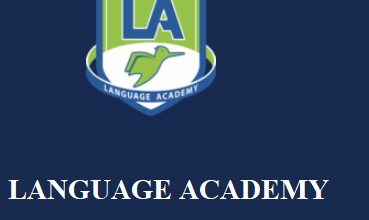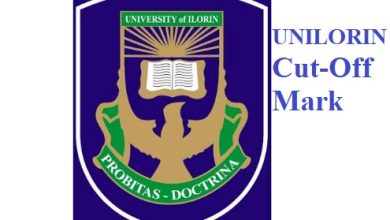
Low Competitive Courses to Study in Nigeria 2023
Low Competitive Courses to Study in Nigeria
Are you a Nigerian student with a Low JAMB score and wondering about suitable low competitive courses to study? We have great news for you! Numerous low-competitive courses offer a high chance of securing admission while allowing you to pursue your passions.
In Nigeria, gaining admission to your desired university can be challenging and competitive. However, there’s no need to give up on your dreams just yet. While popular courses like Medicine and Law have limited slots, there are plenty of other equally exciting and rewarding options that are less competitive. These courses might be the perfect fit for you!
This article will introduce you to the top low competitive courses one can study with a Low JAMB score. Whether your interests lie in the arts, sciences, or social sciences, you’ll find a course on this list of low competitive courses that will captivate your curiosity and open doors to endless possibilities.
The courses you can study with a Low JAMB score of may vary depending on the specific university and its admission requirements. Below are some low competitive courses you could consider with a Low JAMB score
Top Low Competitive Courses to Study in Nigeria
History and International Studies: History and International Studies is an interdisciplinary field that delves into the past to understand how societies, cultures, and nations have evolved. This course emphasizes the study of historical events, key figures, and influential movements that have shaped the world we live in today. Additionally, it explores international relations, global politics, and the interactions between nations. Students will gain critical thinking skills, analytical abilities, and a broader perspective of global affairs, making it an ideal course for those interested in diplomacy, academia, journalism, or working with international organizations.
English Language: The study of English Language involves a comprehensive exploration of the language’s structure, grammar, phonetics, semantics, and syntax. Through this course, students will develop excellent communication skills, both written and oral, making them effective communicators in various professional settings. Additionally, students will analyze literary works, enhancing their understanding of different cultures, historical contexts, and literary devices. English Language graduates often pursue careers in teaching, writing, journalism, publishing, public relations, or any profession that requires strong language proficiency.
French: The French language is widely spoken across the globe and holds great significance in international relations, diplomacy, and culture. A course in French involves the study of the language, literature, history, and cultural aspects of French-speaking regions. Students will learn to communicate effectively in French, which opens up opportunities in translation, interpretation, teaching, tourism, diplomatic services, and international organizations.
Religious Studies: Religious Studies explores the diverse beliefs, practices, rituals, and traditions of various religions worldwide. This course encourages students to critically analyze religious texts, doctrines, and philosophical perspectives. Graduates often find careers in education, interfaith dialogue, counselling, journalism, or community outreach programs.
Linguistics: Linguistics is the scientific study of language and its structure. This course involves the analysis of phonetics, phonology, morphology, syntax, semantics, and sociolinguistics. Linguists study how language evolves, how it influences society, and how humans acquire and use language. Graduates may pursue careers in language teaching, translation, speech therapy, computational linguistics, or work with language-related technologies.
Yoruba Language: the Yoruba Language is a major African language spoken in Nigeria and neighbouring countries. This course immerses students in the study of Yoruba grammar, vocabulary, literature, and cultural significance. Graduates may find opportunities in teaching, research, cultural preservation, or work in government agencies that require proficiency in Yoruba.
Hausa Language: Hausa Language is one of the prominent languages in West Africa, widely spoken in Nigeria, Niger, and surrounding regions. This course focuses on the study of Hausa grammar, vocabulary, literature, and its importance in African culture and history. Graduates may explore careers in translation, language instruction, cultural exchange programs, or work in international organizations that operate in the region.
Igbo Language: Igbo Language is another major Nigerian language spoken by a significant population. The course emphasizes the study of Igbo grammar, vocabulary, literature, and its cultural significance. Graduates may pursue careers in language preservation, education, research, or work with NGOs promoting Igbo culture and heritage.
Music: Music is a diverse and enriching field that encompasses the study of various musical styles, history, theory, and performance. Students will develop musical proficiency, creativity, and a deep understanding of musical composition. Graduates may become professional musicians, music teachers, composers, music therapists, or work in the entertainment industry.
Theatre Arts: Theatre Arts involves the study of drama, acting techniques, directing, stagecraft, and theatrical production. This course nurtures creativity, public speaking, and teamwork skills. Graduates may pursue careers in acting, directing, playwriting, theatre management, event planning, or entertainment production.
Creative Arts: Creative Art is an interdisciplinary course that fosters self-expression and creativity through various artistic forms, including visual arts, music, drama, and dance. Students will explore different mediums of artistic expression and develop their artistic vision. Graduates may pursue careers as artists, designers, performers, art educators, or work in creative industries and media. You may love to read careers in art education.
Philosophy: Philosophy involves the systematic examination of fundamental questions about existence, knowledge, ethics, logic, and the nature of reality. Students will develop critical thinking, problem-solving, and argumentation skills. Graduates often pursue careers in academia, law, journalism, consulting, or any profession that requires analytical and logical reasoning.
Anthropology: Anthropology is the study of humanity, encompassing social, cultural, biological, and archaeological aspects of human societies. Students will explore human evolution, cultural diversity, and social structures. Graduates may find opportunities in academia, research institutions, museums, development agencies, or cultural heritage preservation.
Sociology: Sociology examines social behaviour, structures, and institutions, aiming to understand human interactions and societal dynamics. Students will analyze social issues, inequality, and social change. Graduates may pursue careers in social work, community development, market research, policy analysis, or work in government agencies and non-profit organizations.
Psychology: Psychology focuses on the scientific study of the mind, behaviour, and mental processes. Students will explore various subfields like cognitive psychology, developmental psychology, clinical psychology, and social psychology. Graduates may pursue careers in counselling, clinical practice, research, human resources, or work in mental health institutions and educational settings.
Geography: Geography examines the physical and human aspects of the Earth’s surface. Students will study topics such as landforms, climate, population distribution, urbanization, and spatial analysis. Graduates may find opportunities in cartography, environmental management, urban planning, or work in government agencies involved in land use planning and resource management.
Geology: Geology is the study of the Earth’s materials, structure, processes, and history. Students will explore topics like rocks, minerals, plate tectonics, and geological hazards. Graduates may pursue careers in geology, environmental consulting, mining, oil and gas industries, or work in research institutions studying Earth’s history and resources.
Mathematics: Mathematics involves the study of numbers, quantities, shapes, and patterns. Students will develop problem-solving, logical reasoning, and analytical skills. Graduates may find opportunities in education, finance, research, data analysis, or work in industries that require mathematical modelling and analysis.
Statistics: Statistics deals with the collection, analysis, interpretation, presentation, and organization of data. Students will learn statistical techniques to draw meaningful conclusions from data sets. Graduates may pursue careers in data science, market research, actuarial science, or work in government agencies, research institutions, or financial institutions.
Microbiology: Microbiology is the study of microorganisms, including bacteria, viruses, fungi, and protozoa. Students will explore topics such as microbial ecology, genetics, immunology, and medical microbiology. Graduates may pursue careers in medical and clinical laboratories, biotechnology, and pharmaceuticals, or work in research institutions studying infectious diseases and environmental microbiology.
Biochemistry: Biochemistry explores the chemical processes and substances occurring in living organisms. Students will study cellular functions, metabolic pathways, genetics, and biomolecules. Graduates may find opportunities in biomedical research, biotechnology, pharmaceuticals, or work in health-related industries.
Botany: Botany involves the study of plants, including their structure, growth, reproduction, classification, and importance in ecosystems and human life. Students will learn about plant taxonomy, ecology, and plant diversity. Graduates may pursue careers in agriculture, horticulture, environmental conservation, or work in botanical gardens and research institutions.
Zoology: Zoology is the study of animals, including their classification, structure, physiology, behaviour, and interactions with the environment. Students will explore animal diversity, evolution, and conservation. Graduates may find opportunities in wildlife conservation, animal behaviour research, zoo management, or work with environmental organizations.
Agronomy: Agronomy focuses on the science and technology of crop production. Students will learn about crop management, soil fertility, pest control, and agricultural practices. Graduates may pursue careers in agricultural consultancy, agribusiness, extension services, or work in government agencies related to agriculture and food production.
Crop Science: Crop Science involves the study of crop production, including plant breeding, genetics, disease management, and crop improvement. Students will learn about sustainable agriculture practices and innovations in crop cultivation. Graduates may find opportunities in seed companies, agricultural research institutions, or work with government agencies supporting crop development.
Soil Science: Soil Science explores the properties, formation, classification, and management of soils for agricultural, environmental, and engineering purposes. Students will study soil chemistry, soil fertility, and soil conservation. Graduates may pursue careers in soil testing laboratories, environmental consulting firms, or work in research institutions studying soil health and management.
Agricultural Extension and Rural Development: This course focuses on agricultural education, outreach, and development, aimed at improving farming practices and rural communities. Students will learn about agricultural communication, farmer training, and community development. Graduates may find opportunities in agricultural extension services, rural development projects, or work with NGOs supporting farmers and rural livelihoods.
Home Economics: Home Economics involves the study of household management, nutrition, family dynamics, consumer education, and related life skills. Students will learn about meal planning, clothing and textile management, family economics, and resource management. Graduates may pursue careers in education, family counselling, consumer advocacy, or work in community development programs.
Food Science and Technology: Food Science and Technology cover the scientific principles behind food production, processing, preservation, and quality assurance. Students will explore food chemistry, food safety, sensory evaluation, and food product development. Graduates may find opportunities in the food industry, quality control laboratories, or work in research and development of new food products.
Agricultural Economics: Agricultural Economics combines economics and agricultural sciences to analyze agricultural markets, policies, and economic factors affecting farming. Students will study farm management, agribusiness, agricultural marketing, and policy analysis. Graduates may pursue careers in agricultural consultancy, agricultural finance, agricultural policy analysis, or work with international development agencies focusing on agriculture and rural development.
Agricultural Business: Agricultural Business focuses on the principles of business management and entrepreneurship applied to agricultural enterprises. Students will learn about marketing, farm business planning, risk management, and agribusiness supply chains. Graduates may find opportunities in agricultural entrepreneurship, agricultural finance, or work with agribusiness corporations.
Fisheries: Fisheries involves the study of aquatic resources, their conservation, management, and sustainable utilization, including fish farming and aquatic ecosystems. Students will learn about fish biology, aquaculture practices, and fisheries management. Graduates may pursue careers in fish farming, fisheries management, marine conservation, or work with environmental organizations supporting aquatic ecosystems.
Forestry and Wildlife: Forestry and Wildlife focuses on the management and conservation of forest resources and wildlife habitats. Students will explore forest ecology, timber harvesting, wildlife biology, and biodiversity conservation. Graduates may find opportunities in forest management, wildlife conservation organizations, national parks, or work with government agencies responsible for forestry and wildlife management.
Environmental Management and Toxicology: This interdisciplinary field addresses the management of environmental resources, pollution control, and the effects of toxins on ecosystems and human health. Students will study environmental laws, toxicology, environmental impact assessment, and pollution prevention strategies. Graduates may pursue careers in environmental consulting, environmental regulation compliance, or work with organizations promoting sustainable environmental practices.
Physics: Physics explores the fundamental laws and principles governing matter, energy, and the universe. Students will study mechanics, electricity, magnetism, thermodynamics, and modern physics. Graduates may find opportunities in research, engineering, teaching, or work with technological companies.
Chemistry: Chemistry is the study of matter, its properties, composition, and transformations. Students will explore various branches of chemistry, including organic, inorganic, physical, and analytical chemistry. Graduates may pursue careers in chemical research, pharmaceuticals, chemical analysis, or work in industries involving chemical processes and products.
Sociology: Sociology examines social behaviour, structures, and institutions, aiming to understand human interactions and societal dynamics. Students will analyze social issues, inequality, and social change. Graduates may pursue careers in social work, community development, market research, policy analysis, or work in government agencies and non-profit organizations.
Public Administration: Public Administration focuses on the management and implementation of government policies and programs at various levels. Students will study public policy analysis, budgeting, administrative law, and organizational management. Graduates may pursue careers in government administration, public service, policy analysis, or work with non-governmental organizations.
Criminology and Security Studies: This course explores the causes and consequences of crime, criminal justice systems, and the maintenance of societal security. Students will study criminological theories, law enforcement practices, and security management. Graduates may find opportunities in law enforcement, security consulting, crime prevention, or work with organizations focused on public safety and security.
Library and Information Science: Library and Information Science cover the organization, management, and retrieval of information resources in libraries and other information settings. Students will learn about cataloguing, information systems, digital libraries, and information literacy. Graduates may find opportunities in library management, information services, knowledge management, or work with educational and research institutions.
Estate Management: Estate Management focuses on the valuation, development, and management of real estate properties, including property law and investment analysis. Students will study property valuation, real estate finance, and property management practices. Graduates may pursue careers in real estate agency, property development, estate surveying, or work with real estate companies and property investment firms.
Urban and Regional Planning: Urban and Regional Planning involves the design and management of urban and regional spaces, addressing issues such as land use, infrastructure, and sustainable development. Students will study urban design, environmental planning, transportation planning, and housing policies. Graduates may find opportunities in urban planning departments, regional development agencies, or work with architectural and engineering firms.






